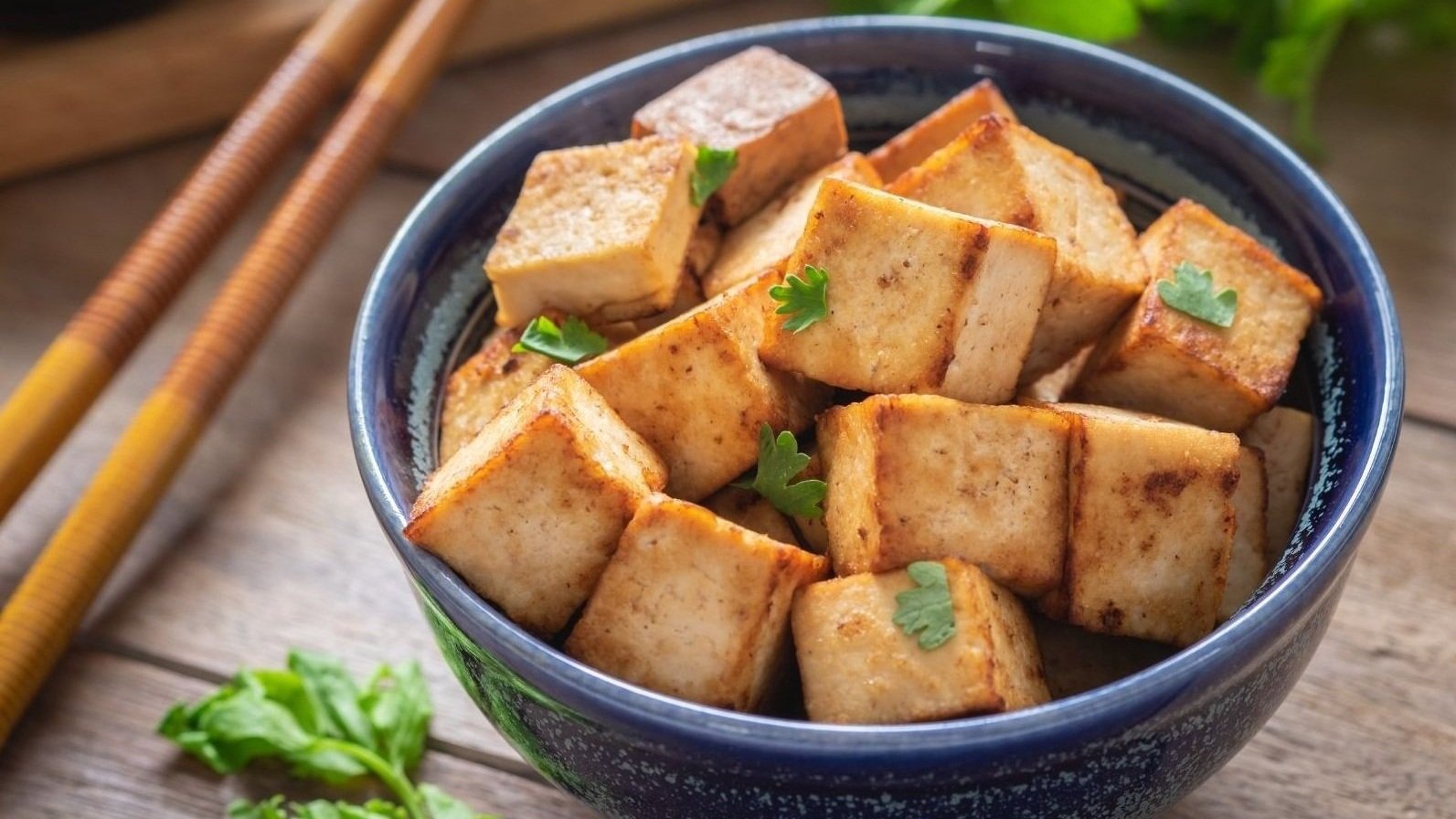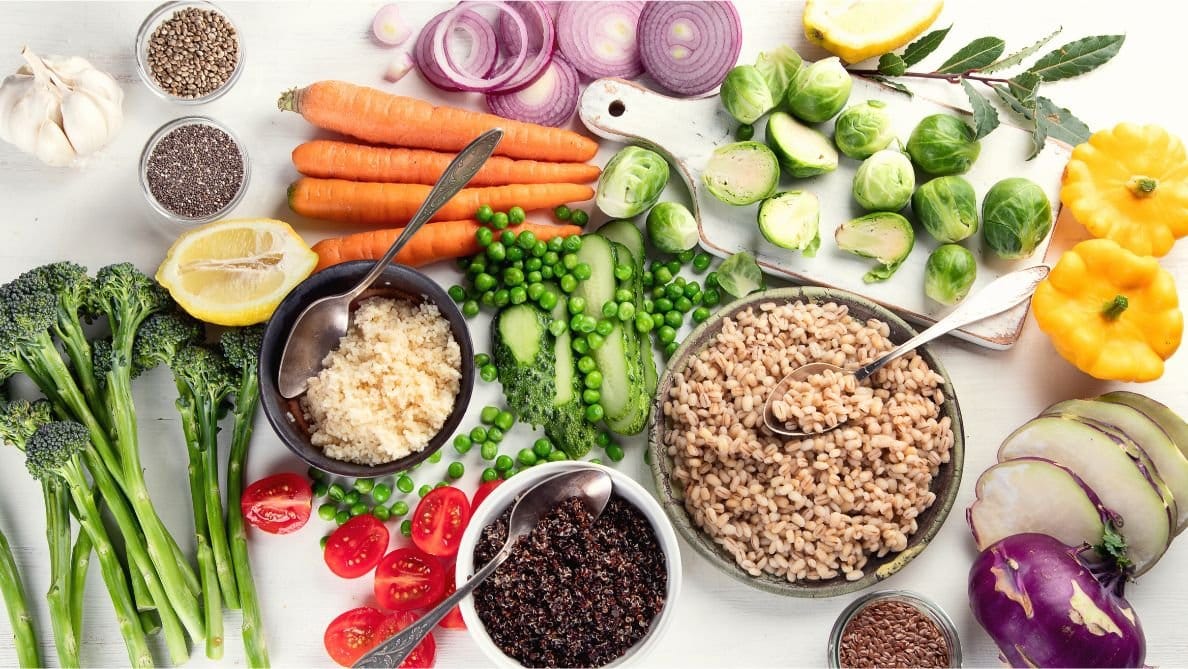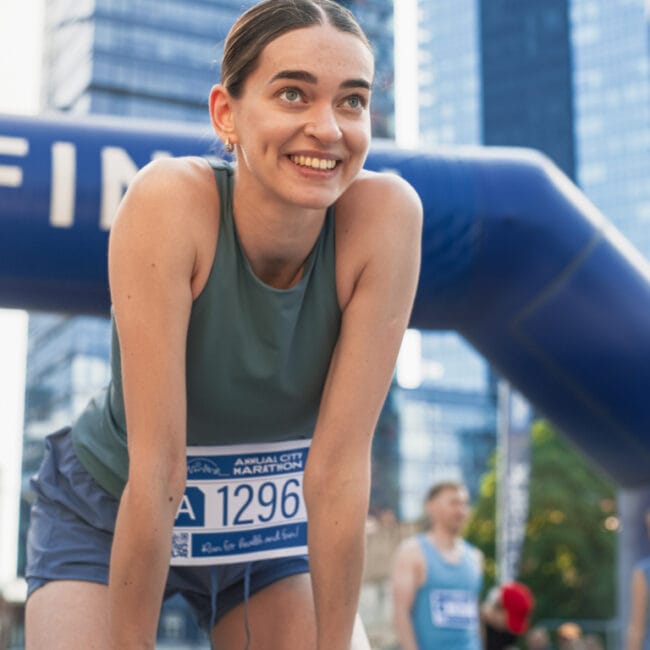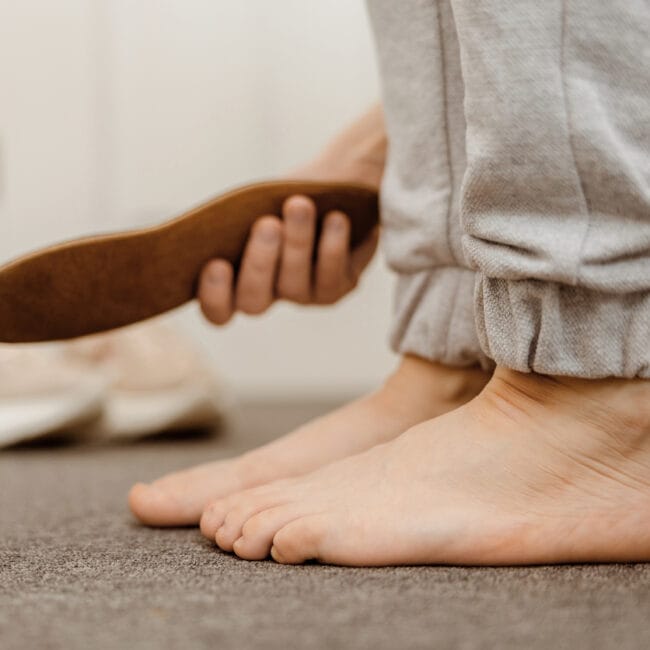The 1st of November marks World Vegan Day, and to celebrate, Spectrum Nutrition Dietitian Dillon Griffin talks us through the key nutrients that need some extra consideration when following a vegan diet, to ensure nutritional intake is being optimised.
Check out the 8 key nutrients for vegans to consider below!
1. Protein
Protein is an essential nutrient in everyone’s diet for growth and repair, among many other functions. When we consider protein in a vegan diet we have to ensure that we are getting good quality protein as well as an optimal quantity of protein.
Proteins are made up of amino acids. Plant-based foods can be low in the amino acid leucine which is important for muscle building, strength and recovery. Soy, however, is an excellent plant-based source of protein and ideally should be used as a regular source of protein for those following a vegan diet, as a replacement for meat and other animal product protein sources.
Sources of soy products that have good amounts of leucine include:
Tofu
Tempeh
Soy milk
Edamame beans
Soy-based protein powders (1)
Furthermore, combining foods such as beans with grains, nuts and seeds will provide a more “complete” plant-based protein to ensure you are getting all the amino acids required.
2. Vitamin B12
The nutrient B12 is only found naturally in animal products. It functions in the body to make red blood cells, upkeep energy levels and maintain brain health. Some studies have shown that up 86.5% of vegetarian adults are diagnosed with a B12 deficiency (2).
Fortified foods play a very important role in getting sufficient levels of B12, so try to include fortified milks, breakfast cereals and nutritional yeast in your diet at least twice per day. If this is not possible for you then a B12 supplement would be of value.
Aim for a daily B12 dose of 10 micrograms per day, or at least 2000 micrograms once per week.
3. Calcium
In addtion to making up our bones and teeth, calcium is also involved in contracting our muscles, clotting blood and helping our heart to beat. Should our calcium level be low in our blood or other tissues, our body can pull on calcium from our bones to balance the levels out. It is therefore vital that we eat enough calcium from food on a daily basis (5).
Good plant-based sources of calcium include:
Fortified dairy replacements
Edamame beans
Dried figs
Chia seeds
Tahini
Almonds
Tofu can also be a good source of calcium but check that it is “Calcium Set” by looking for calcium in the ingredients list, e.g. Firming Agent: Calcium Sulphate.

4. Iron
Commonly associated with red meat, iron functions with vitamin B12 to make new cells, balance energy levels and circulate oxygen. Our bodies absorb around 15% of iron from animal sources, known as haem iron. In contrast, our bodies absorb about 3-8% of iron from plant sources. (4) This is known as non-haem iron. For this reason, it is important for people following a vegan diet to get regular blood checks to assess their iron status, eat iron rich foods and maximise absorption of iron.
Good vegan sources of iron include:
Oats
Sesame seeds
Tahini
Almonds
Quinoa
Lentils
Fortified cereals
Pairing sources of Vitamin C with plant based iron foods will also help boost the absorption of iron. Have a small glass of orange juice (150ml) with your breakfast of oats, apricots and pumpkin seeds or try having bell peppers alongside a lentil and quinoa curry.
It also important to note that tea and coffee can reduce iron absorption by 50% so they should ideally be avoided in the hour before and after meals to help ensure maximum absorption.
5. Zinc
Zinc plays an important role in brain function, the immune system and reducing oxidative stress. Vegan diets may require 1.5 times more zinc than non-vegan diets due to the higher phytic acid content in their diets (6). Phytic acid comes from nuts, seeds, legumes and wholegrains, which typically are consumed in higher amounts by vegans.
Excellent plant-based sources of zinc include:
Beans
Chickpeas
Lentils
Tofu
Walnuts
Cashew nuts
Chia seeds
Ground linseed
Hemp seeds
Pumpkin seeds
Wholemeal bread
Quinoa

6. Iodine
The thyroid gland found in your neck / throat requires iodine to funtion. Iodine allows the thyroid to make hormones which monitor the speed of all chemical reactions that arise in our body, also know as our metabolism.
The main plant based source of of iodine is sea vegetables. Nori sheets also appear to be a safe option for iodine, but the content of the mineral can vary greatly. It is advised to limit intake of the same to one sheet per day. Some foods are also fortified with iodine and will state this on the label.
If you aren’t getting enough iodine in your diet then an iodine supplement may be helpful. The recommended daily amount is 150ug/day, ideally as the “potassium iodide” or “potassium iodate” form, but it is best to avoid seaweed or kelp sources.
7. Omega 3
Omega 3 serves an important role in brain, skin and heart health, to name a few. The omega 3 found in animal products is composed of eicosapentaenoic acid (EPA) and docosahexaenoic acid (DHA). These oils can be found in microalgae supplements and a daily dose of 250-550mg is recommended.
Other plant based sources of the daily recommended amount of omega 3 to consider include:
One tablespoon of flaxseed / linseed
One tablespoon of chia seeds
Half a tablespoon of flax oil
Eight walnuts

8. Vitamin D
Half of Irish adults are deficient in Vitamin D, with a further 30% borderline deficient. Vitamin D is a nutrient that our skin syntheses when exposed to the sun. Studies have linked vitamin D to improving our bone health, immunity and mood. It is recommended that Vitamin D be supplemented from Halloween to Saint Patrick’s Day each year, and a daily dose of 15 micrograms is advised by the Food Safety Authority of Ireland (9).
Summary
Research has shown that following a vegan diet can be a healthy lifestyle option for some people, and is in fact associated with a lower BMI and lower rates of obesity – if followed in a nutritionally balanced way. To get the most from your plant-based diet be sure to give the above nutrients some extra consideration in your diet, in both quality and quantity.
Happy World Vegan Day everyone!
Today, 1st November, is World Vegan Day – find out more here!
Read more about nutrition for vegans here.
Thinking about switching to a vegan diet or looking for expert guidance on plant‑based nutrition? Our registered dietitians can create a personalised plan to meet all your nutritional needs. Explore our Vegan Diet services today.
References
BERRAZAGA, I. et al. (2019). The role of the anabolic properties of plant- versus animal-based protein sources in supporting Muscle Mass Maintenance: A critical review’, Nutrients, 11(8), pp. 1825.
RIZZO, G. et al. 2016. Vitamin B12 among vegetarians: Status, assessment and supplementation. Nutrients, 8(12).
PAUL, C. and BRADY D.M., 2017. Comparative Bioavailability and Utilization of Particular Forms of B12 Supplements With Potential to Mitigate B12-related Genetic Polymorphisms. Integr Med (Encinitas), 16(1), pp.42-49.
EMS, T., ST LUCIA, K. and HUECKER, M.R., 2023. Biochemistry, Iron Absorption. StatPearls. StatPearls Publishing.
YU, E. and SHARMA, S., 2023. Physiology, Calcium. StatPearls: StatPearls Publishing.
HUNT, J.R., 2003. Bioavailability of iron, zinc, and other trace minerals from vegetarian diets. The American Journal of Clinical Nutrition, 78(3).
THE IRISH NUTRITION AND DIETETIC INSTITUTE (INDI), 2022. Iodine on a plant-based diet. Dublin: INDI.
THE IRISH NUTRITION AND DIETETIC INSTITUTE (INDI), 2022. Omega 3 on a plant-based diet. Dublin: INDI
THE FOOD SAFETY AUTHORITY OF IRELAND (FSAI), 2023. FSAI publishes scientific report on vitamin D nutrition for people aged 5 to 65 years in Ireland. [Online]. Dublin: FSAI. Available from: https://www.fsai.ie/news-and-alerts/latest-news/fsai-publishes-scientific-report-on-vitamin-d-nutr [Accessed 25 October 2023].
Written by: Dillon Griffon, CORU Registered Dietitian with Spectrum Nutrition















